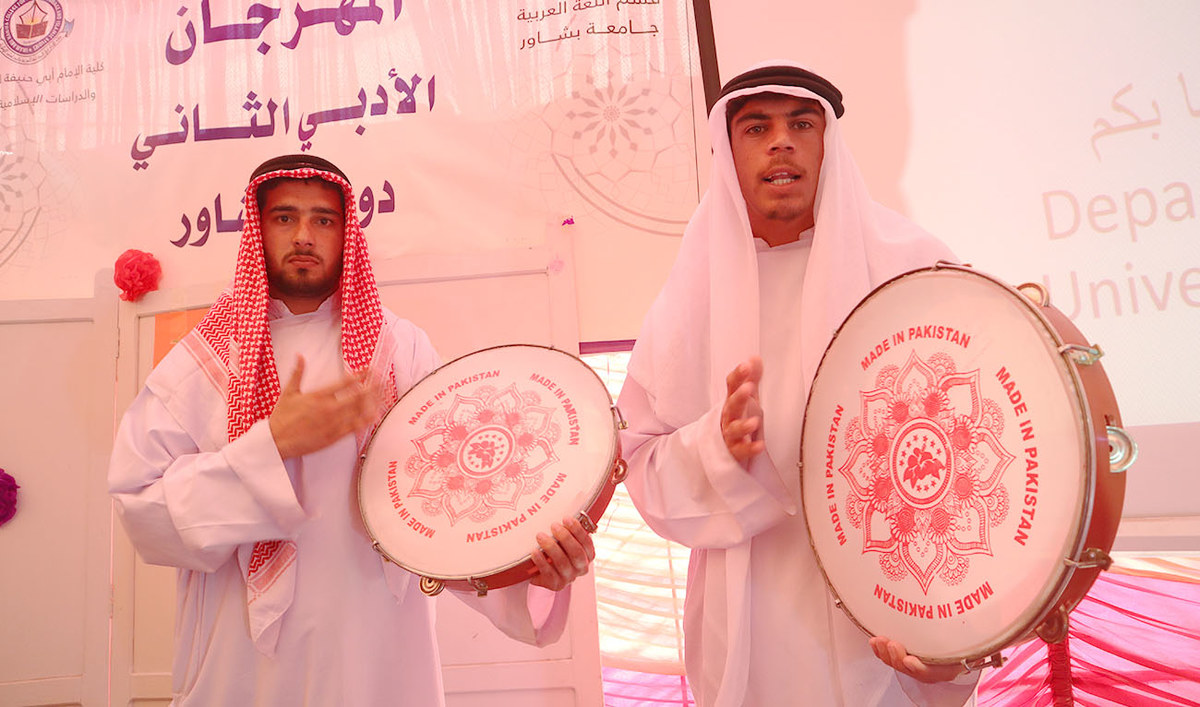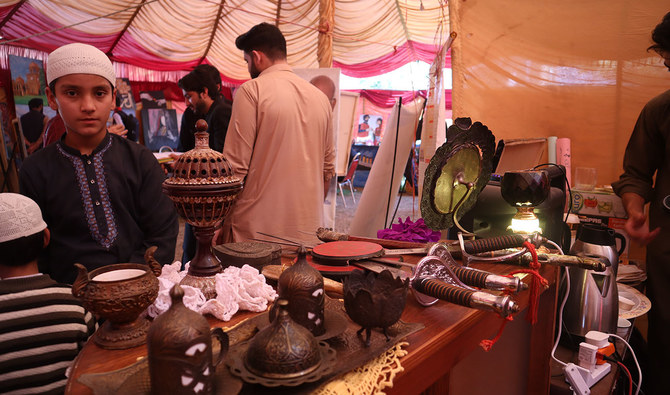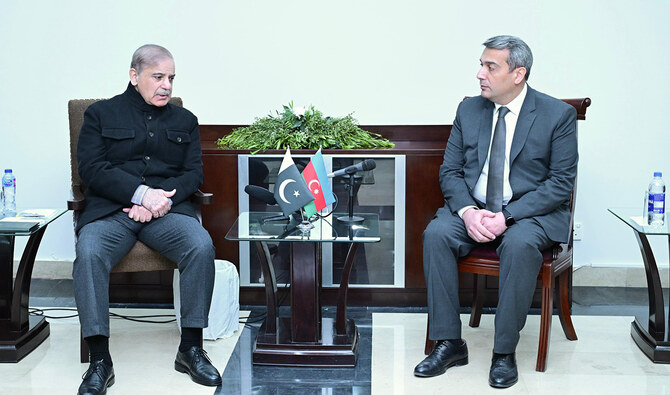PESHAWAR: People visiting the Peshawar Literary Festival this week were attracted by a stall that projected various dimensions of Arab culture and welcomed visitors with traditional Middle Eastern music and fragrant qahwa.
The Department of Arabic at the Peshawar University took the initiative to set up the stall, though it executed the plan in collaboration with the Khyber Pakhtunkhwa Culture Department and Dosti Welfare Organization.
At the university, which is also hosting the five-day festival which started on Tuesday, the organizers of the stall were dressed in traditional Arab attire and said their aim was to acquaint people with the beauty of the predominant Middle Eastern culture.
Dr. Ahmed Saeed Jan, a faculty member of the Arabic department, said the stall was divided in several different areas.
“We have arranged a stall for books, the second has the model of Kaaba [the black cubical structure at the heart of the Grand Mosque in Makkah], the third stall represents pure Arab culture and here we see many kinds of swords and [antiques] and instruments which belong to Arab culture,” he added. “And at the fourth stall, we are arranging qahwa which we offer to the visitors with dates.”

Organizers singing traditional Arabic Music and Playing Duff at University of Peshawar on February 24, 2023. (AN Photo).
Jan said the stall was set up to convey Islam’s message of peace while also projecting how people in the Arab world lived.
A student of Peshawar University and member of the organizing committee that set up the enclosure, Sana Ullah said one of the many reasons why it was decided to carry out the activity was to tell people why they should learn Arabic language and how it could benefit them.
He added the Department of Arabic was well placed to do that since it was one of the oldest sections of the university which was established in 1952.
“We are trying to promote the love for Arabic language in Pakistan,” he said. “People coming over here also show interest in learning the language.”

Swords and other antiques desplayed for the visitors at University of Peshawar on February 24, 2023. (AN Photo)
Dr. Uzma Dayan, a lecturer at the Institute of Education and Research, said Arab culture was not unfamiliar to people in a city like Peshawar which had immense diversity.
“Among all these stalls, I found this one the most interesting,” she told Arab News. “The one thing I liked [about this enclosure] the most is that they are trying to motivate visitors [to learn about Arab culture] while offering them qahwa and dates.”
She pointed out there were a number of other oriental departments teaching Pashto, Persian and Urdu, adding that none of them had built such a stall.
















